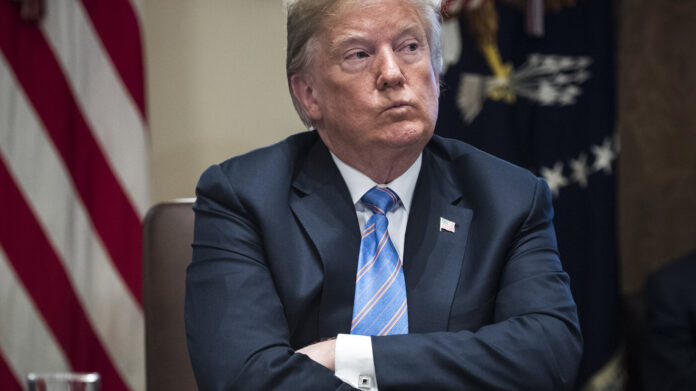
Donald Trump has accused Brazil of imposing unfair trade barriers on American goods, calling for new tariffs as a response. Speaking to Congress, he claimed that Brazil and other countries have taken advantage of the United States for years. His speech comes just weeks after announcing a 25 percent tariff on Brazilian steel and aluminum, set to take effect on March 12. The decision has already caused concern among Brazilian exporters, who fear major financial losses.
President Luiz Inácio Lula da Silva has warned that Brazil will not stand by while its economy suffers.
The growing tension has raised fears of a trade war between the two nations. With the March 12 deadline approaching, the situation remains uncertain, and both sides must decide whether to negotiate or escalate the conflict further.
Trump Declares Trade War on Brazil in Fiery Congress Speech
Trump stood before Congress and directly accused Brazil of applying unfair tariffs on American products. He argued that the United States has been exploited by foreign governments and that his administration would no longer tolerate economic imbalances.
“All these countries have taken advantage of us for years. Brazil, China, India, Mexico, and many others. That stops now,” Trump said.
Trump also announced that his government would impose reciprocal tariffs starting April 2. He promised that whatever tariffs these countries impose on American goods, the United States will impose back on them.
He criticized past administrations for allowing unfair trade deals to continue, saying that foreign companies have been benefiting while American businesses struggle.
The US President Singles Out Brazil Over Ethanol Tariffs
Trump specifically mentioned Brazil’s tariffs on American ethanol, arguing that Brazil charges 18 percent on ethanol imports, while the United States only charges 2.5 percent.
“Brazil charges us 18 percent on ethanol. We charge them just 2.5 percent. That is not fair, and it is changing now,” Trump stated.
His administration believes that Brazil’s policies hurt American farmers, particularly those in states like Iowa, Nebraska, Missouri, Indiana, and Kansas. The new tariffs are widely seen as a move to protect American agriculture while punishing Brazil for its ethanol trade policies.
Brazil Threatens Trade Retaliation
Brazilian officials have condemned the tariffs, calling them unjustified and harmful to economic cooperation between the two countries. Vice President Geraldo Alckmin has pushed for direct negotiations, suggesting that a quota system could replace the tariffs.
President Lula has taken a harder stance, warning that if Trump imposes tariffs on Brazil, his government will respond with:
- Higher taxes on American agricultural goods like soybeans, corn, and beef
- A formal complaint to the World Trade Organization
- Stronger economic ties with China and the European Union to reduce dependence on the United States
Lula has stated that Brazil will not accept being treated as a second-rate trade partner.
Brazil exports over 5.8 million metric tons of steel to the United States every year, representing nearly 60 percent of its total steel shipments. The new tariffs could lead to losses of up to 700 million dollars, affecting major Brazilian producers like:
Companies are already preparing for the impact, with some cutting production to avoid surplus stock. Others are seeking alternative markets, with China and Europe emerging as the most likely destinations for excess steel.
United States Faces Its Own Problems
While American steel producers have praised the tariffs, many US industries are worried about the consequences. Manufacturers rely on cheap Brazilian steel, especially for construction and automobile production. Higher tariffs will:
- Raise production costs for American businesses
- Increase prices for consumers
- Force companies to look for alternative suppliers
Economic analysts warn that higher steel prices could slow industrial growth, affecting jobs and overall market stability.
Update – It looks like Canada and the United States will make a new agreement that will prevent the potential trade war. However, a similar agreement with Brazil seems unlikely.
Growing Fears of a Trade War
Trump has already targeted China, Mexico, and the European Union with similar trade measures. Adding Brazil to the list has raised fears of a larger economic conflict that could affect global markets.
With the March 12 deadline approaching, pressure is building on both sides. Brazil must decide whether to negotiate or move forward with its threats of economic retaliation. The United States, meanwhile, risks damaging relations with a key Latin American partner.
A full trade war could create serious consequences for both economies, forcing companies and consumers to bear the burden of rising costs.
Source: uol.com.br
















